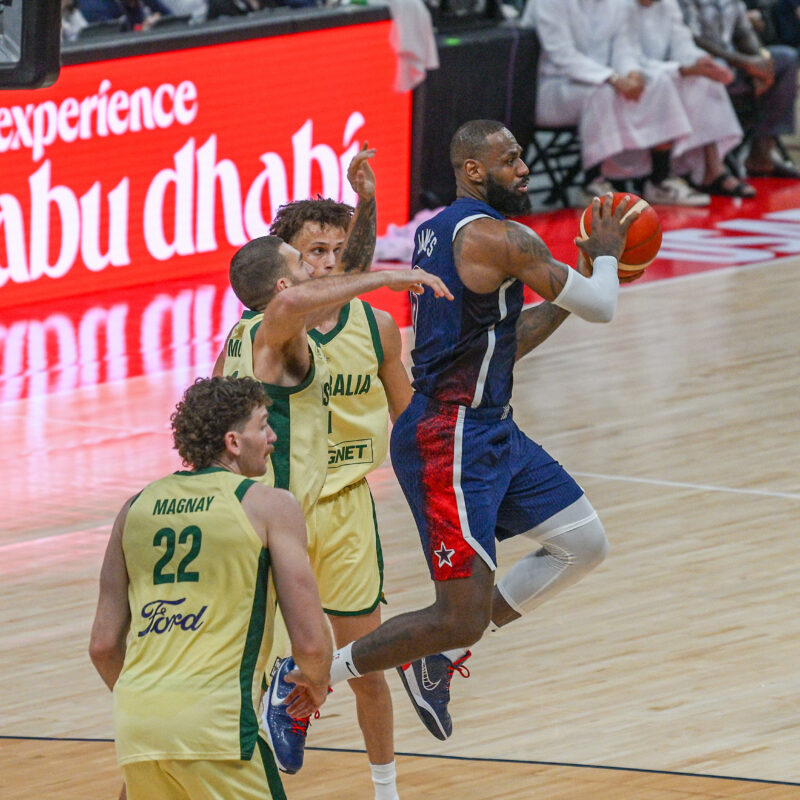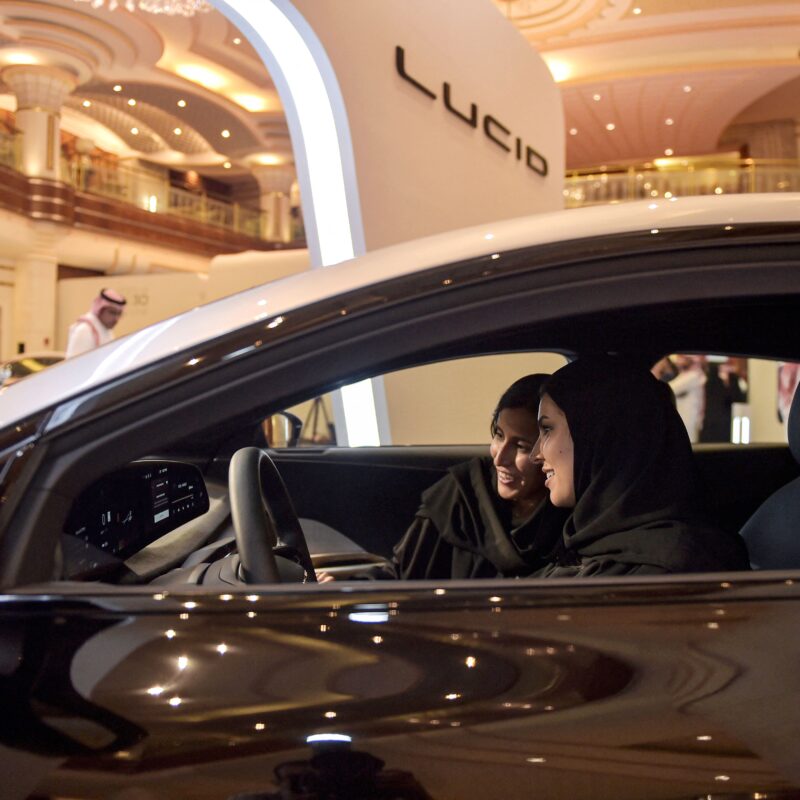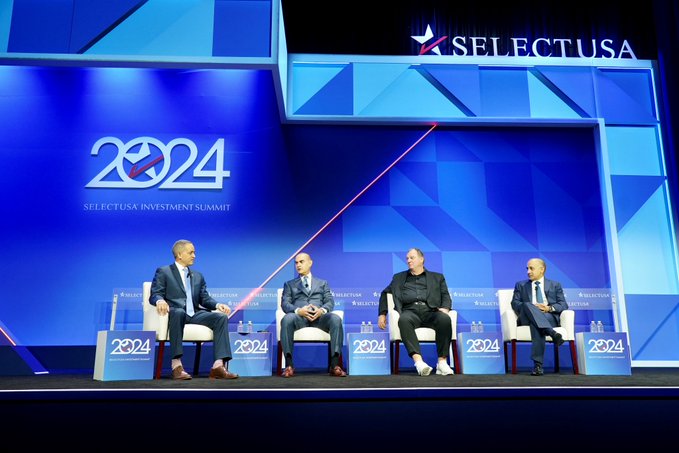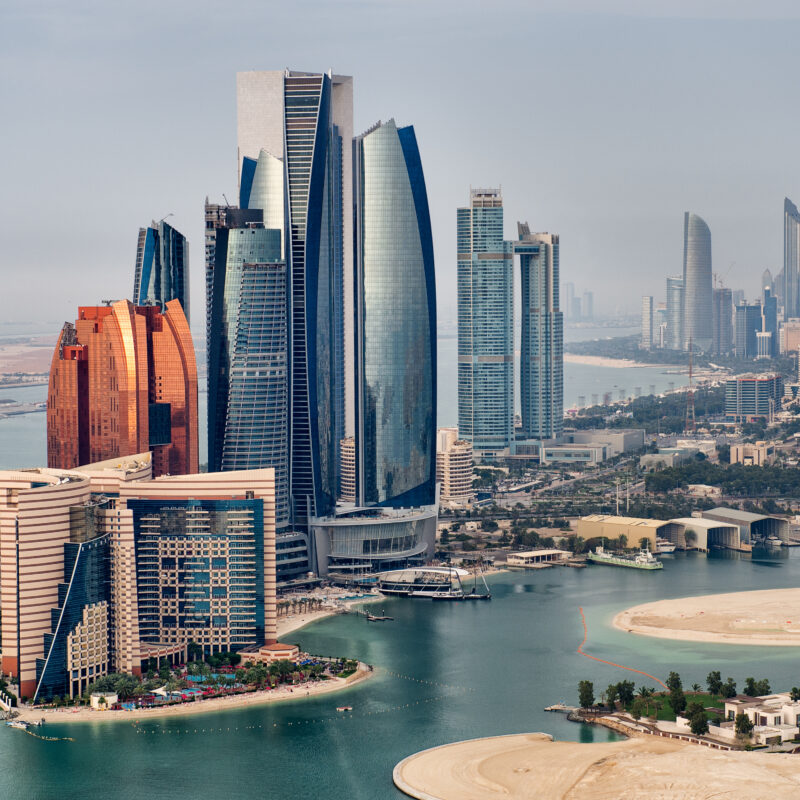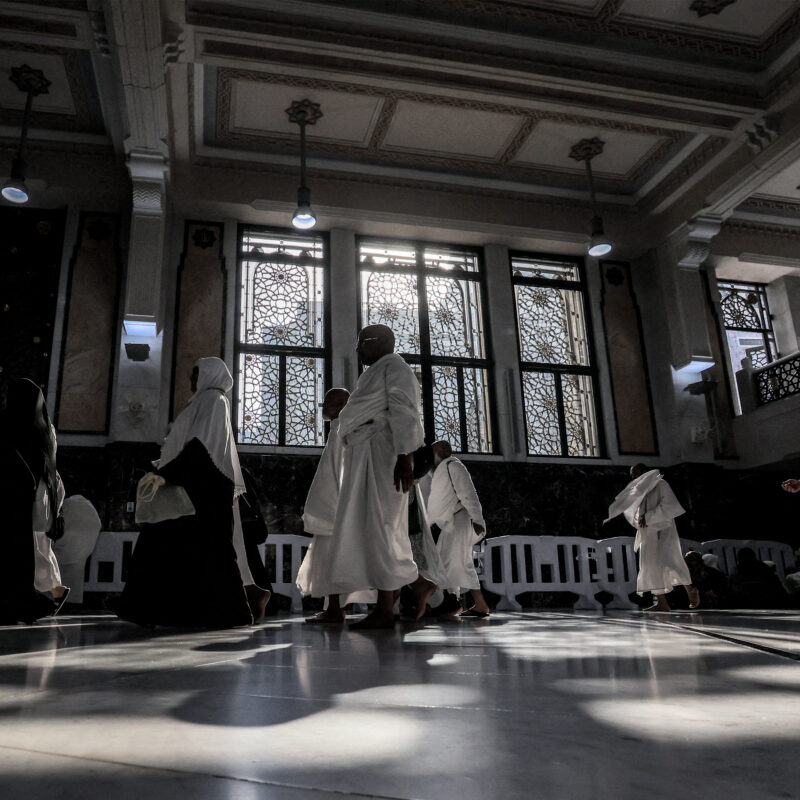The Weekly Circuit
👋 Good Wednesday morning in the Middle East!
With the end of 2022 coming into sight, it’s apparent that this year will be remembered as a nightmare for Israeli startups. Third-quarter data confirms that investment has been drying up and amounted to less than half of what it was a year ago, The Circuit reports this week. Layoffs and other cost cuts have become the norm, a rude awakening from 2021 when startups in Israel raised a record $25.6 billion. Though venture capitalists believe it would be unwise to spend freely during the current economic slowdown, they say tech investment will inevitably recover.
While President Joe Biden mulls what sort of “consequences” to impose on Saudi Arabia for pushing through – together with Russia – a 2% cut in oil production from OPEC+ countries, the kingdom is getting support from Gulf neighbors. The UAE’s energy minister, Suhail Al Mazrouei, said yesterday that the unanimous decision by the 23 OPEC+ member states was “technical” and meant to “stabilize” crude oil prices – not represent a slap at the U.S. Despite tensions, U.S. corporate executives are still planning to attend next week’s “Davos in the Desert” business conference in Saudi Arabia.
Autumn in the Gulf means that evening temperatures are dipping to a pleasant 80° F (27° C), bringing crowds out for a series of music and arts festivals. As the Culture Circuit reports below, the hip-hop/R&B group Black Eyed Peas will kick off six nights of music in Qatar next month in tandem with soccer’s World Cup. In Saudi Arabia, Cirque du Soleil’s acrobats, dancers and clowns will open the “Riyadh Season” festival this Friday.
Welcome to The Weekly Circuit, where we cover the Middle East through a business and cultural lens. Read on for the stories, deals and players at the top of the news. Please send comments and story tips to [email protected].
Spread the word! Invite your friends to sign up.👇
DRY WELL
Israeli startup funding cut in half amid global slowdown
Funding for Israeli startups slid further from last year’s record heights as sinking technology stocks, rising interest rates and renewed geopolitical conflict chill enthusiasm for investment, The Circuit’s Jonathan Ferziger reports.
Steep decline: The torrent of cash once lavished on Israel’s emerging tech companies fell to $2.8 billion in the third quarter, a 56% drop from the same period in 2021 and a 36% decline from the previous quarter, according to a report by Herzliya-based Viola Ventures. The slowdown was especially pronounced in so-called mega deals, valued at more than $100 million, which fell 69% from last year’s third quarter, Viola’s analysts said in the report, “Public Market Volatility – Reflected in The Israeli Tech Ecosystem.” The drop must also be viewed in the context of 2021’s record fundraising and an overall upward trend over recent years, the Viola report said.
Disruptive companies: “Prophecy is for fools, but we do believe that technology will continue to be a massive driver for global transformation, and VCs will continue to invest in disruptive companies,” Tomer Meridor, a member of Viola’s investment team who wrote the report with colleague Rotem Shacham, told The Circuit.
Tracks U.S.: The findings mirror the decline in startup funding for U.S. and Canadian companies, which fell 53% in the third quarter to about $40 billion from the same period a year ago, and 37% from the second quarter of 2022, according to Crunchbase. New York’s Nasdaq stock market, where Israeli companies represent the second largest number of foreign members after China, reflects the darkening sentiment. The Nasdaq Composite Index has fallen 33% since the end of last year and Nice Systems, one of the biggest Israeli companies trading on the exchange, is down 30%.
Layoffs and cutbacks: Israeli startups, in turn, have been laying off employees and cutting back on other expenses. Otonomo Technologies, which collects data from network-connected cars, dismissed dozens of its employees after losing 95% of its value on the Nasdaq. Digital advertising platform Taboola, whose shares have fallen 78%, and website maker Wix, down 54%, both laid off more than 100 employees each, Calcalist reported.
Gulf investment: Among the ways Israeli companies have sought to contend with the decline in U.S. investment has been to find new partners in the Gulf Arab states that signed the Abraham Accords in 2020, normalizing ties with the Jewish state. Israel and the United Arab Emirates signed a free trade agreement in May that is expected to increase trade between the two countries to $10 billion within five years. OurCrowd, Israel’s most active venture capital platform, was licensed last year to operate as a fund manager in the Abu Dhabi Global Market.
Read the full story here.
Circuit Chatter
World Cup Flights: Qatar Airways will hire 10,000 new employees, expanding its staff of 45,000 ahead of next month’s World Cup and to restore service to pre-COVID-19 levels.
Desert Millionaires: Senior expat executives were drawn to Saudi Arabia’s Neom megaproject with annual salaries of more than $1 million, The Wall Street Journal reported.
Sacred Fruit: Morocco shipped thousands of citrons to Israel, where Jews use the fruit to celebrate the Sukkot holiday. Before normalization, they went through third countries.
Dead Sea Islands: Israel hopes to boost tourism at the Dead Sea, the lowest point on earth, with new hotels built on a series of artificial islands and jetties in the salt-infused waters.
Raising Money: LuLu Group International, an Abu Dhabi retail conglomerate, hired the Moelis investment bank as advisor on an IPO planned for next year.
Closing Circuit
Biggest IPO: Mobileye, the Israeli maker of self-driving car technology owned by Intel, set the terms for its upcoming IPO that values the company at about $16 billion, making it the biggest Wall Street share sale this year.
New Ventures: e&, the UAE telecommunications company formerly known as Etisalat, launched a $250 million venture capital fund to invest in technology startups.
Night Vision: Israel’s Elbit Systems’ U.S. subsidiary won a $107 million order to supply night goggles, spare parts and testing equipment to the U.S. Army.
Biometric Shield: Israel’s IronVest, which uses biometric technology to protect personal data, raised $23 million in a funding round led by Accomplice, with participation from Ulysses, Joule Ventures and OurCrowd.
Making Waves: London-based Alphawave IP Group is buying Israel’s Banias Labs, which makes high-speed digital signal processing chips, for $240 million.
Good Fit: Israel’s MySize clothing measurement company has acquired Spain’s Naiz Fit to provide technological solutions for its e-commerce fashion business.
On the Circuit
Sebastian Kurz, the former chancellor of Austria, will serve as president of Dream, a new Israeli cybersecurity firm founded by Shalev Hulio, who resigned as head of NSO Group after it was blacklisted by the U.S. over its Pegasus software.
Nader Haffar, chief executive of KPMG’s office in Dubai, will step down at the end of the year, amid turmoil in the firm over his leadership.
Paris Hilton appeared in Dubai on Tuesday for the launch of her new fragrance, Ruby Rush, at the Mall of the Emirates.
Ahead on the Circuit
Oct. 25-27, Riyadh, Saudi Arabia: Future Investment Initiative. Conference bringing together CEOs, policymakers, investors to discuss the future of international investment and the global economy. King Abdulaziz International Conference Center.
Nov. 9-10, Bahrain: Bahrain International Air Show. Exhibition with 140 companies expected from aviation, defense, space and logistics industries. Sakhir Air Base.
Nov. 17-18, Abu Dhabi, UAE: The Milken Institute Middle East and Africa Summit. Experts gather to ponder the future of the region in the realms of business and geopolitics. Rosewood Hotel.
Dec. 6-8: Manama, Bahrain: Arab International Cybersecurity Summit. Cybersecurity experts, business and government leaders discuss risks and opportunities in the digital world. Exhibition World Bahrain.
Culture Circuit
Riyadh Festival: Saudi Arabia’s “Riyadh Season” arts and culture festival kicks off on Friday with a performance by Cirque du Soleil, the traveling circus known for dazzling acrobatics set to popular music. The five-month festival will include daily fireworks, 150 concerts, 17 Arabic-language plays and participation from 252 restaurants.
Soccer and Song: Qatar’s World Cup soccer tournament will be accompanied next month by a six-night music festival headlined by Grammy-winning Black Eyed Peas. Lead singer will.i.am will open the festival at the Doha Golf Club on Nov. 20. J Balvin, the Colombian reggaeton star, will take the stage on Nov. 24. Egyptian singer Amr Diab will perform at the Aravia festival in Al Wakrah, north of Doha; the event will feature 45 artists and run from Nov. 21 to Dec. 18.



